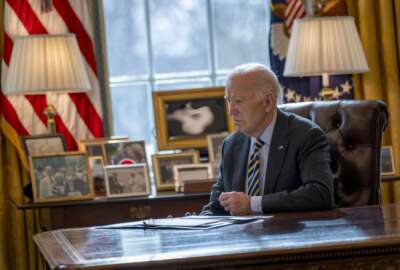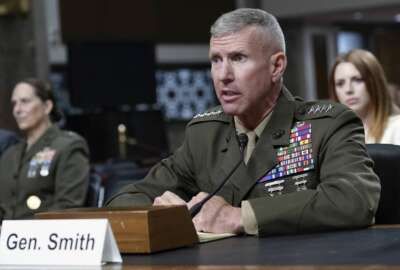
Dr. Daniel M. Gerstein
Deputy Under Secretary for Science & Technology Department of Homeland Security Dr. Daniel M. Gerstein has served as the Deputy Under Secretary for Science...
Deputy Under Secretary for Science & Technology
Department of Homeland Security
Dr. Daniel M. Gerstein has served as the Deputy Under Secretary for Science & Technology in the Department of Homeland Security since August 2011. He is also an Adjunct Professor at American University in Washington, DC at the School of International Service (SIS) where he teaches graduate level courses on biological warfare and the evolution of military thought.
Dr. Gerstein has extensive experience in the security and defense sectors in a variety of positions while serving as a Senior Executive Service (SES) government civilian, in uniform, and in industry. Before joining DHS, he served as the Principal Director for Countering Weapons of Mass Destruction (WMD) within the Office of the Secretary of Defense (Policy). He has served on four different continents participating in homeland security and counterterrorism, peacekeeping, humanitarian assistance, and combat in addition to serving for over a decade in the Pentagon in various high level staff assignments. Following retirement from active duty, Dr. Gerstein joined L-3 Communications as Vice President for Homeland Security Services, leading an organization providing WMD preparedness and response, critical infrastructure security, emergency response capacity, and exercise support to U.S. and international customers.
Dr. Gerstein also has extensive experience in international negotiations having served on the Holbrooke Delegation that negotiated the peace settlement in Bosnia, developed and analyzed negotiating positions for the Conventional Armed Forces in Europe (CFE) talks, and developed an initiative to improve cross border communications between Colombia and neighboring Andean Ridge nations. Additionally, Dr. Gerstein led an initiative to develop a comprehensive biosurveillance system for the Department of Defense (2010-2011), served on the leadership team for the Project for National Security Reform (PNSR) which was charged with developing a new national security act to reflect the changing security environment (2007-2008), co-led the Secretary of the Army’s Transition Team (2004-2005), and led the Army’s most comprehensive restructuring since World War II (2000-2001).
He has been awarded numerous military and civilian awards including an award from the Government of Colombia, the Department of State’s Distinguished Service Award, and the U.S. Army Soldiers Medal for heroism. He has published numerous books and articles on national security, biological warfare, and information technology including Bioterror in the 21st Century (Naval Institute Press, October 2009), ICMA Report: Planning for a Pandemic (ICMA Press, Volume 39/Number 3 2007), Securing America’s Future: National Strategy in the Information Age (Praeger Security International, September 2005); Leading at the Speed of Light (Potomac Books, November 2006); Assignment Pentagon (Potomac Books, May 2007). He has also served as a fellow at the Council on Foreign Relations and is a current member.
Dr. Gerstein graduated from the United States Military Academy at West Point and has masters degrees from Georgia Institute of Technology in Operations Research, the National Defense University in National Security & Strategic Studies and the Command & General Staff College in National Security Strategy & Policy, and a Doctor of Philosophy degree from George Mason University in Biodefense.
He resides in Alexandria, VA with his wife Kathy. They have two daughters.
Copyright © 2025 Federal News Network. All rights reserved. This website is not intended for users located within the European Economic Area.




